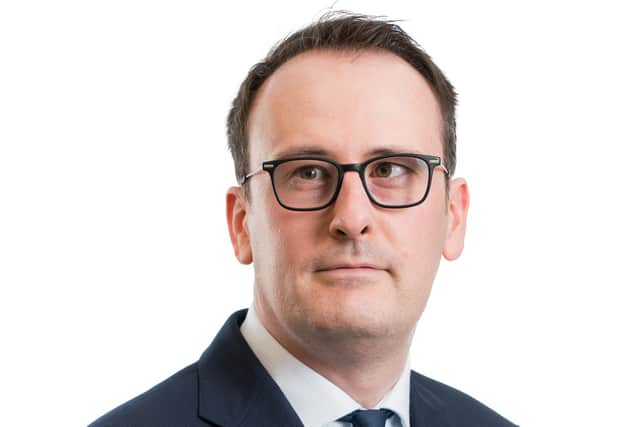Weighing up the overnight levy


The legislation was unveiled by the Scottish Government in May and, if passed, will provide local authorities with the option to add a tax to overnight accommodation.
The City of Edinburgh Council has been a long-time campaigner for the proposed law, which councillors believe would enable increased expenditure to support large tourist numbers in the Capital.
It could become the first council in Scotland to impose a tourist tax after Manchester became the first UK city to do so earlier this year.


But whether or not a visitor levy, which per the Bill would be based on a percentage of the accommodation cost, is needed in Scotland depends on who is asked, says Roland Smyth, head of CMS’ Scottish hotels and leisure team.
He believes many residents will want the Bill to pass to ensure visitors contribute towards the facilities and services they use, and to tackle other issues such as overcrowding.
Meanwhile, many hoteliers, restaurants and venues oppose the move because strong tourism income in the summer and winter festival months help them operate year-round, sustaining their businesses through the quieter months.
And while there are various concerns about the proposals, there are potential benefits in that dialogue on how levies would be raised and spent could lead to greater engagement between stakeholders, including the tourism industry, local and central government, and communities.


“The Scotsman recently reported that astute block-booking of student accommodation by Edinburgh Fringe venues has kept the average price of rooms for performers down at around £40 per night this year,” explains Smyth. “That is two, in theory, completely different sectors working together to benefit Edinburgh, as well as the festivals. Anything that gets different parts of the Capital talking to each other has got to be a good thing.”
Smyth’s views are shared by his peer Mark McMurray, planning partner at CMS, who notes that strong relationships between all parties will be important in helping monitor how the tax is implemented.
He believes revenues from tourist taxes could enable strategic investment, but one major issue surrounds how the money will be used: “There is a slight concern among people in the tourism industry that local authorities may use revenues to effectively plug gaps in existing budgets or replace money in those existing budgets, so they don’t actually result in increased expenditure.”
The Bill makes clear that revenues should be used for developing, supporting or sustaining facilities and services which are substantially for or used by leisure visitors.
Therefore, effective monitoring and reporting structures need to be in place to ensure revenues are being used correctly.
Smyth and McMurray also warn of concerns over the level of the levies, which would be decided individually by each local authority.
In Edinburgh, a tourist tax between 3 and 5 per cent of the cost of overnight accommodation has recently been suggested, superseding the city council’s initial proposal of a flat rate of £2 per person per night and subsequent proposal of 2-4 per cent of overnight accommodation cost.
Some in the industry question how high the percentage could end up, and whether it would significantly impact businesses’ operating margins.
Smyth, who specialises in hotels and high-end commercial property, adds: “In 2021, 127,000 of the 392,000 Edinburgh Festival Fringe attendances were by Edinburgh residents and a further 67,000 were from the rest of Scotland. In 2022, local residents were responsible for 39 per cent of Fringe ticket sales. There is an argument that visitors shouldn’t be taxed for things that residents are benefiting from.”
Much of the debate among organisations in the Scottish tourism sector has surrounded the issue of deterring visitors.
Those coming to Scotland already pay a high level of VAT, which has a standard rate of 20 per cent, as well as Air Passenger Duty, which has contributed to the UK having some of the world’s highest aviation taxes since its introduction in 1994.
“The concern is that even just the passing of the legislation allowing visitor levies – even if a local authority chooses not to have a levy – would put people off coming to visit here,” maintains McMurray, who has a wealth of experience in advising on major development and infrastructure projects.
“If Edinburgh introduces a levy, it could put off potential tourists who would base themselves in the Capital but would likely be travelling to other parts of Scotland from visiting the country.”
With public consultation on the Bill running until September, the experts believe that collaboration between the tourism industry, local authorities and the communities impacted is essential to ensure the productive implementation and management of a tourist tax.
McMurray concludes: “We have a whole economy based on tourism and it is a Scottish Government priority economic sector – there are a lot of spin-off benefits.
“It is that collaboration that is really needed to ensure everyone feels on board and their views are taken into account.”
Find out more about sustainable tourism from CMS here.